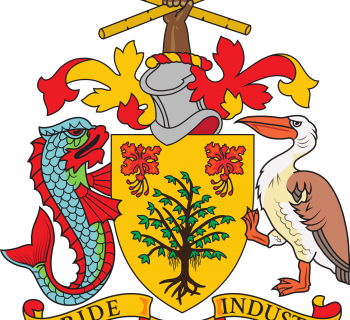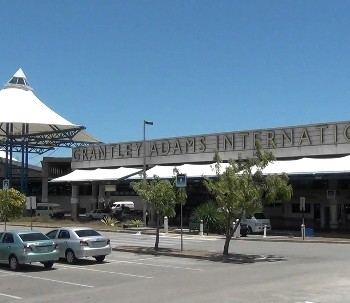Island of barbados
The island of Barbados belongs to the Lesser Antilles, which occupies the eastern part of the Caribbean Sea. This tropical island is located next to South America, 434.5 km from Venezuela. The island of the same name is located, the head of which is the Queen of Great Britain. She is represented in Barbados by the Governor General.
The island is 34 km long and 23 km wide. Its western coastline has magnificent beaches. The calm Caribbean Sea in those places is best suited for a relaxing holiday. The eastern shores of the island are washed by the Atlantic Ocean. The capital of the country is the city of Bridgetown. The population of the island is 250 thousand people. Among them are mulattos, Barbados (descendants of slaves from Africa), Indians, Europeans and representatives of the peoples of the Middle East. To the west of Barbados are islands such as Saint Vincent and the Grenadines, Saint Lucia.
The island of Barbados has a flat relief. There are small hills only in the central part. It is formed by coral deposits, and the composition of the soil suggests that it is not of volcanic origin..
Historical reference
The first inhabitants of Barbados were the Arawak Indians who came there from South America. But they were taken by the Spaniards to Hispaniola. Sugar cane plantations appeared on the island in 1637. This is the first place in the Caribbean region where sugar began to be produced on a large scale. The plantations were cultivated by African slaves until slavery was abolished in 1838. The state exported sugar and rum for centuries past. Currently, the tourism sector brings huge profits to the country. Tourists have been visiting this amazing island for over 200 years. In 1961, Barbados received self-government. After 1966, the island gained independence, but remained part of the British Commonwealth. Barbados is a member of the UN, the Caribbean Community and other international organizations.
Climatic features
The island is dominated by a tropical climate and trade winds. The weather conditions are close to those of the subequatorial marine climate. Constant winds blow from the Atlantic. All year round, the air temperature varies from +26 to +30 degrees. Sea breezes and trade winds make the climate milder, saving people from extreme heat. The wettest month is July. Hurricanes are possible in the summer, but most often they form in the fall months. Dry season - the period from February to the last days of May. The natural hazards of Barbados are hurricanes and floods. The level of insolation is also very high here..
The nature of the island
Barbados has many tropical plants and sandy beaches. The west coast is the ideal destination for holidaymakers. The island of Barbados has historical monuments, reserves, underwater caves. Unique animals and plants of the tropics have been preserved in protected areas.


